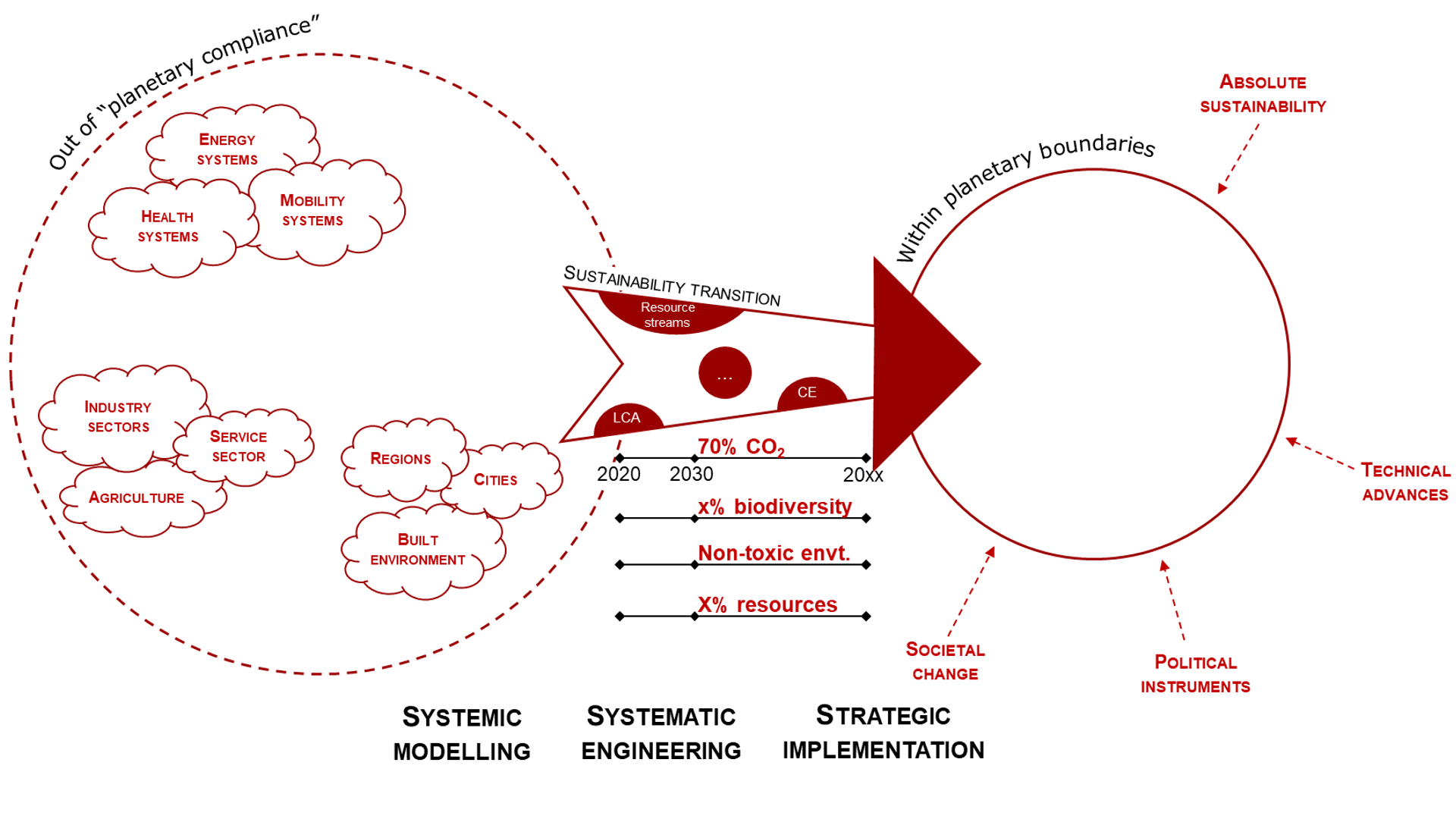Research
The Centre for Absolute Sustainability is organised according to three research pillars, ensuring a dynamic and consolidated research approach to sustainability transition.
Our research within the Centre for Absolute Sustainability is organised according to three pillars, each with key aims and contributions to our overall goal of enabling cross- and interdisciplinary research to guide society in the transition towards absolute sustainability. This transition among other aspects involves defining safe and sustainable operating spaces for society and activities, developing the needed sustainable technologies, and identifying the pathways required for implementation of these new solutions.
In the following, we describe the three research pillars of the Centre.

Systemic Modelling: “where should we go?” A systemic and quantitative perspective is needed to define, assess and allocate the sustainability operating space of society. This requires system level modelling and assessment methodologies that cover the different environmental sustainability dimensions, and models that allow us to evaluate the dynamics and constraints in society, and to enable the transition towards a sustainable society. Currently, such models and methodologies do not exist.
Systematic Engineering: “How should we get there?” Technology development and scale-up need consistent support to ensure that the right solutions are available for society and that these solutions are sustainable at a systems level. This requires data-driven insight into technologies, industry processes and production systems as well as models and decision-support to effectively enable sustainable technologies in society. Today, such guidance and methodological framework are not available in coherent methodology sets.
Strategic Implementation: “What should we do to get there?” Sustainable transition and full-scale implementation and integration of the right technologies in society are needed to reach the sustainability goals. This requires strategic and consistent analysis of barriers, technology foresights, framework conditions, and roadmaps to ensure societal impact. Thus far, no comprehensive methodological platform exists to support such analyses and strategic planning.